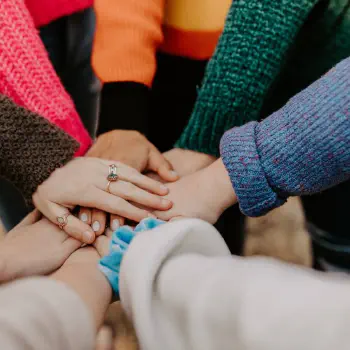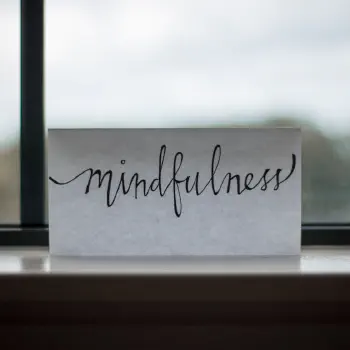Pull Quotes: "The key to understanding emotional abuse therefore, lies in checking the extent of negative impact a person has on one’s psyche."
"Does a dynamic make one feel lesser every time there is an exchange? Does their behaviour make one feel conflicted in what the equation is on paper versus the discomfort it makes one feel? Does an equation with someone take away one’s sense of self, one’s power over oneself?"
I have spent the past six years delving into the concept of emotional abuse. Of course, when I first started, I did not have the terminology and language to identify it as such but, my desire to understand the root cause of mental and emotional distress around me kept me going. The past two years or so of these six years were dedicated to churning out literature in the shape of my book, Hineni that talks about emotionally abusive parenting. I chose to write fiction as opposed to an academic paper or non-fiction because my goal to write about emotional abuse was to provide access to more people, without scaring them off.
Throughout my efforts to write and talk about emotional abuse, one of the key concerns that I was aware that I needed to look out for was helping people differentiate between emotional abuse and bad behaviour. The need for this not only arose from the need to prepare one against every bad behaviour being labelled as emotional abuse thereby, labelling bad attitude as a bigger, darker manifestation of a person’s psyche; but, also to ensure that the intensely harmful reality that is emotional abuse, does not get diluted by simpler, one-off bad experiences.
This therefore, is the reason for me to share this post as a way to reshare earlier insights from an earlier writing and build on it with newer understanding.
In my experience, there is a very fine line between extremely bad behaviour and emotional abuse, which is what makes it very confusing for someone in an abusive situation to pin abuse down. This is also the reason why more often than not, survivors of emotional abuse remain silent since the impact of abuse remains invisible per se, exactly how mental health is looked at. Even when it comes to explaining experience of emotional abuse, a victim or survivor may find it hard to articulate for the confusion and fear of being misunderstood can get overwhelming.
The key difference between emotional abuse and bad behaviour may be noted in the depth of psychological impact and control that the victim is/has been under. That’s because the basic intent behind emotionally abusing someone is to gain complete control over that person. It may stem from narcissism or insecurity but, the intent remains to control. Do note, not every narcissist or insecure person may be emotionally abusive.

To make it easier to discern, following is my list of traits of an emotionally abusive equation -
Conditional Love : Showering someone with affection and appreciation if they play exactly the role that the abuser has for them in their lives. A change in the role or behaviour usually would invite withdrawal of affection from the abuser as a way to encourage returning to the earlier role or punish for deviating from the set role. This essentially stems from the inability to see the person as an independent individual in their own right, instead seeing them as just a tool to bring the abuser what they need.
Isolation : One sure way to gain control over the emotions of another person is to isolate them from others - other family members, friends, community. This renders the victim even more helpless and codependent, often leading to prolonged silence about their abuse, despite constantly living with negative emotions, due to either absolute lack of a social network or platform and/or believing in not having the same.
Victim Blaming and Shaming : Another reason that causes a victim t remain silent or be unable to fathom one’s abuse is a constant hostile environment wherein the abusive person engages in consistent shaming of the victim while holding the latter responsible for the said hostility. This often ends up hitting the sense of self-worth and perception of the victim leading to their silence. It usually transects the territories of constant criticism, sarcasm, name-calling and/or verbal assault.
Threats to Punish : While verbal assault and isolation are ways to gain power over the victim, threats to punish are a more direct way to ensure complete control over the other person. In contrast, conditional love i.e., refraining from giving affection or basic respect is a way to subtly ensure power remains with the abuser. The punishment could be anything between physical assault to ghosting, or publicly shaming the victim by creating a situation that makes the latter look particularly bad/guilty. Threats to punish can further be backed by the unpredictability of the abuser’s behaviour - showering love one minute, threatening punishment the next - which can be a cause of great stress and fear in the victim’s mind.
Refusal of Responsibility or Gaslighting : The last element of an abusive relationship is when the victim/survivor musters the strength to confront the abuser or maybe is just accepting the reality of their abuse. The latter in this case, when confronted, more often than not chooses to completely deny any responsibility for the dysfunction in the relationship; going as far as gaslighting the victim by lying or manipulating the reality, again turning the focus on the victim by blaming them for everything wrong in the dynamic.
Since the intent is to control, the common thread shared by those who have survived emotional abuse is usually a declined sense of self, a persistent doubt in one’s own perception of the self, reality, the world.
In case of long term abuse (such as that in the case of abusive parenting or caregiving), the control is so intense that the victim tends to dissociate from one’s own self, having been attuned to focusing so much on the abuser emotionally.
To conclude therefore, emotionally abusive behaviour is the most fundamentally damaging form of abuse, severely impacting the deepest of a person’s self, something that is difficult to recognise and accept.





















